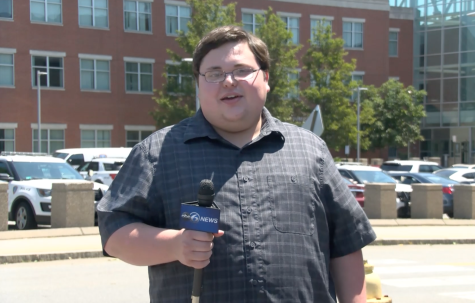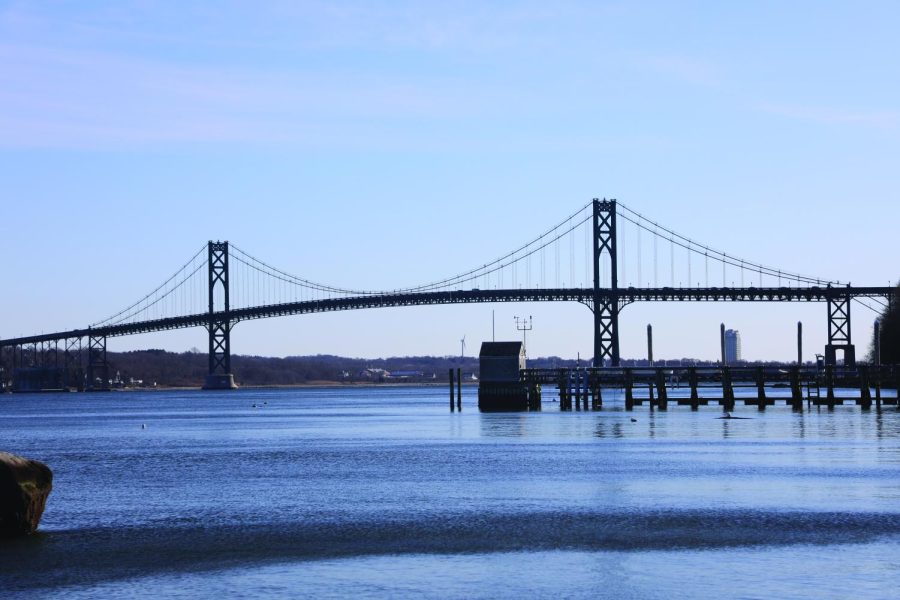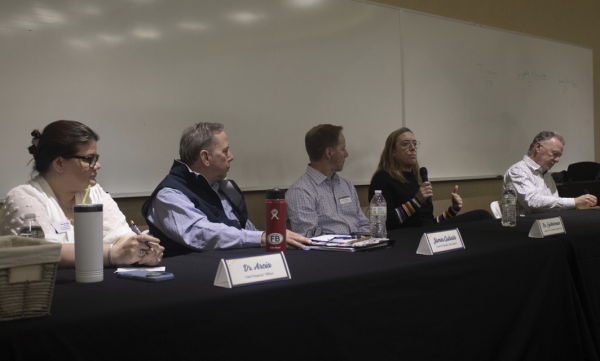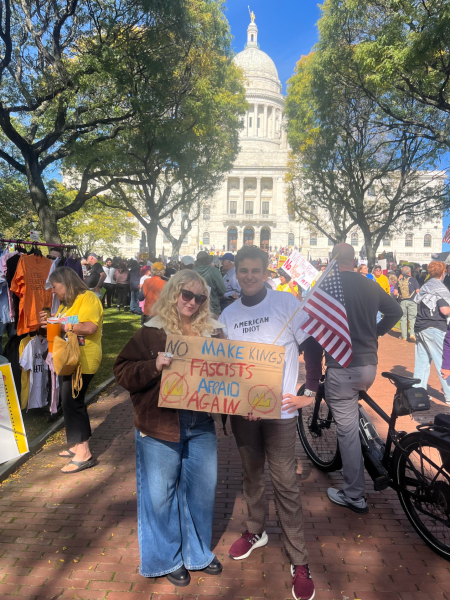March deadline for Phase 2 of EDA’s Build Back Better Regional Challenge approaching for RWU
RWU has until March 15 to submit Phase 2 application
Rachel Dvareckas/The Hawks’ Herald
RWU is working towards initiatives to help develop the region. The first initiative is to create a “smart bay” with buoys, sensors and cabling in Narrangansett Bay.
March 15 marks the deadline for Phase 2 of the U.S. Economic Development Administration’s (EDA) Build Back Regional Challenge in which Roger Williams University is a part of for the State of Rhode Island.
The EDA Build Back Better Challenge, according to the EDA website, is a national competition in which grant funding up to $100 Million is provided to different economic regions in the country. The ones selected for Phase 1 submit the best concept proposals and for Phase 2 it is the regions that submit the best full applications for funding. The EDA’s Selection and Review Committee considers funding recommendations based on several factors such as geographic and regional balance, project and industry types and the overall portfolio.
In Phase 2, 10-12 regional proposals will be identified to receive between $80-$100 Million toward regional collaborations. The focus for economic and industrial development in Rhode Island is the Blue Economy, which the World Bank defines as “the sustainable use of ocean resources for economic growth, improved livelihoods, and jobs while preserving the health of ocean ecosystems.”
RWU has been collaborating with the Rhode Island economic region since August 2021. However, Phase 1 had been going on in various phases for years in the state developing ocean strategies for the region.
Chief of Staff Brian Williams said RWU got involved in Phase 1 in August because “the strategies for the region started evolving and connecting to the existing work and distinctive role the only we [RWU] can play in the state on various initiatives.”
As for the plans RWU has been helping the region develop to try to secure Phase 2 funding, Williams said there are three core concepts that have become more formal, structured initiatives.
The first initiative is a “smart bay” concept that involves building out the region with buoys, sensors and cabling to make Narragansett and Mt. Hope Bays a big data project to support environmental efforts and product development. The next initiative is Blue innovation. Williams described it as “making Rhode Island an attractive place for companies to come and develop ideas within blue industry sectors.”
The last initiative is education and workforce development that would help ensure a clear pipeline of talent can flow from high school or college to work for students and create internships and research partnerships between higher education and industry.
Williams has been involved in the writing of the region’s plans for Phase 2, but he has had help along the way.
“Various people at RWU have been involved with me helping meet or provide information into the writing,” said Williams. “The writing is at a very high level, and RWU is one of many organizations involved.”
RWU is the only private university helping with the grant development process according to Williams. Going forward beyond Phase 2 Williams said he and RWU President Ioannis Miaoulis have seen that the blue strategy and regional strategy have to be larger than just the EDA grant process.
“Our focus is on aligning RWU with the growing industry sectors around us to create opportunities for faculty research, student research and internships and jobs for our students,” said Williams.
“These span wind energy, aquaculture, marine affairs and policy word, non-profits, K12 Science, Technology, Engineering and Mathematics (STEM) opportunities, and so much more.”
RWU contributes to the Blue Economy in several ways outside of assisting with the grant. The university is the host institution for the Narragansett Bay Estuary Program (NBEP) which provides independent convening, scientific data analysis, and watershed project funding.
The RWU School of Law also houses the Marine Affairs Institute and Rhode Island Sea Grant Legal Program. RWU serves as the only law school on the eastern seaboard tied to the sea grant program that can provide applied legal research and analysis on marine law issues to outside professional organizations such as government agencies, nonprofit groups, and private corporations.
Additionally, RWU has The Center for Economic and Environmental Development (CEED) which focuses on collaborative marine research, industry support, marine education, public outreach, engagement, and extension.
Williams said the Blue Economy is part of RWU’s DNA.
“The commitment is really in our DNA as stewards of the bay due to our location, and the passions and academic expertise of our faculty and our students.”

Jimmy Sadowski is a journalist with experience in print, multimedia, and broadcast journalism. Sadowski’s specialty is news, but can also provide...






